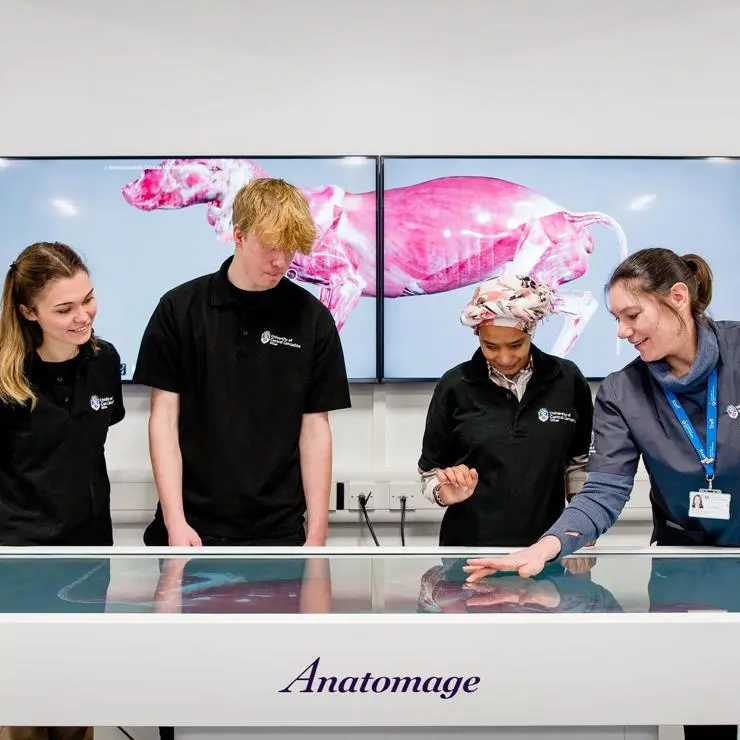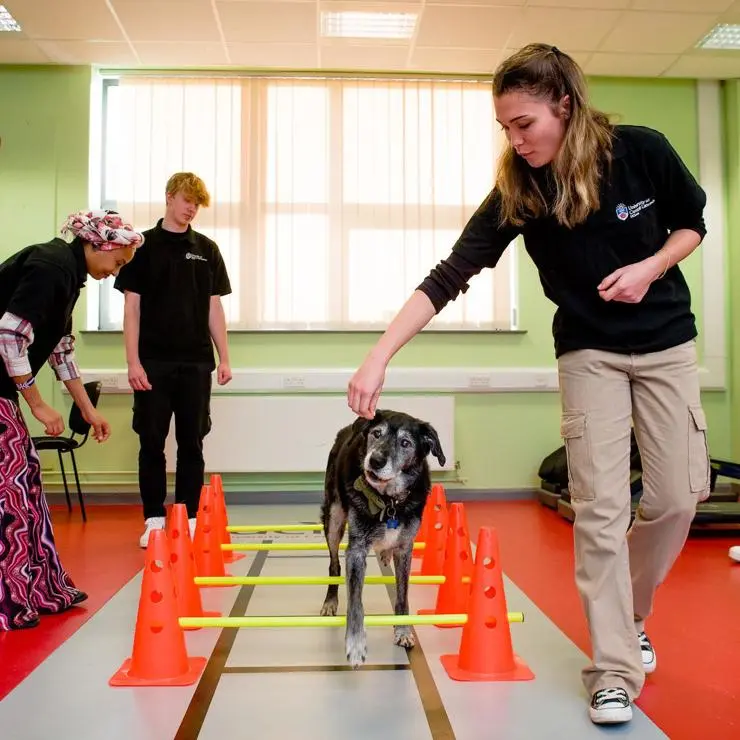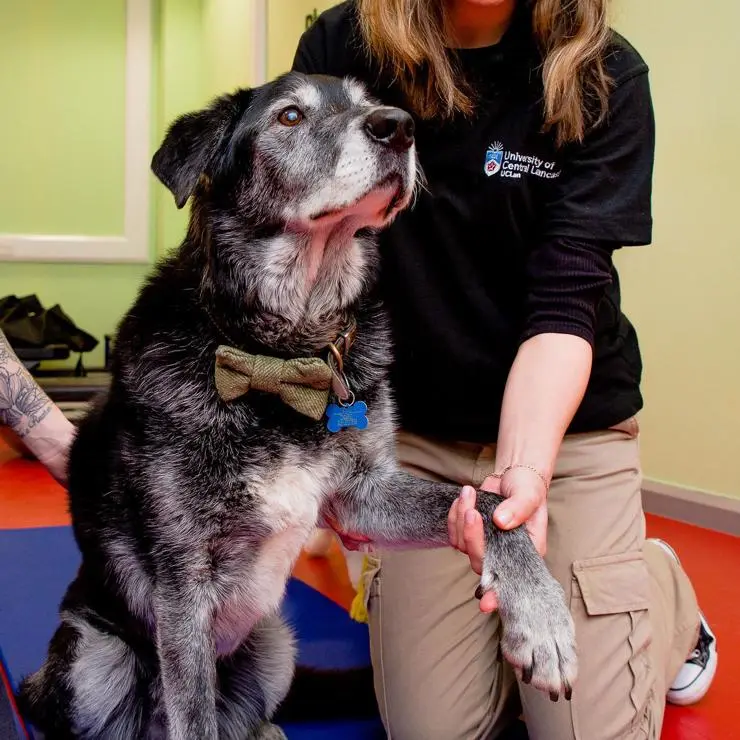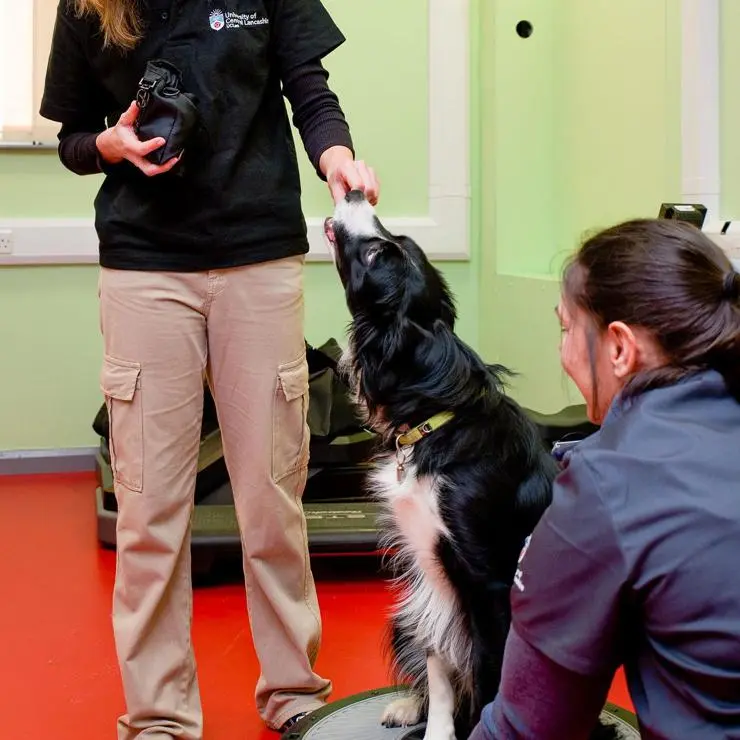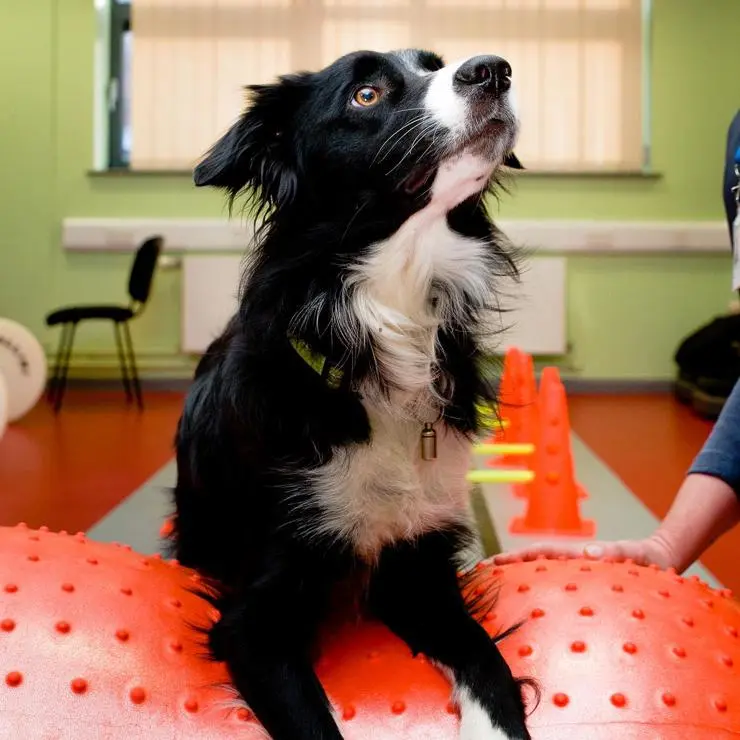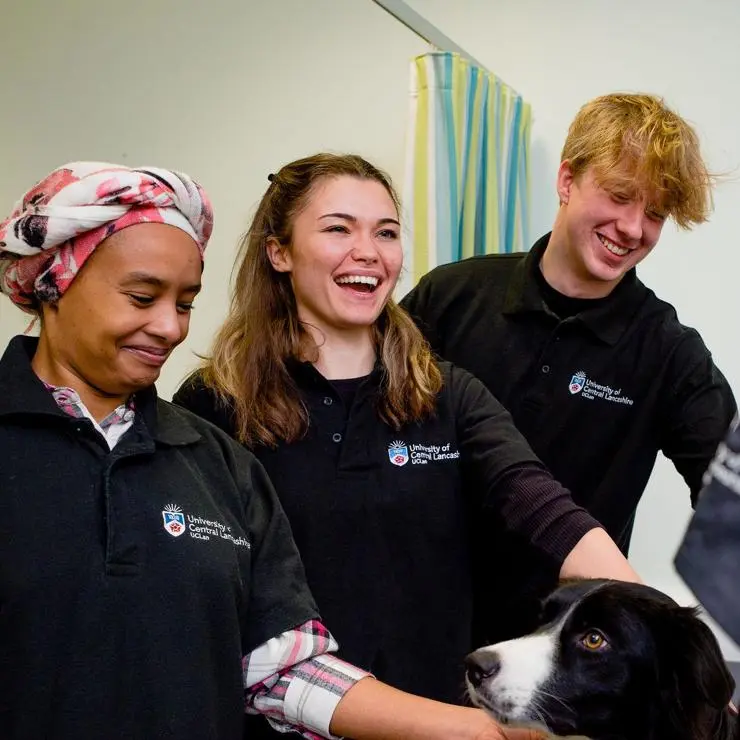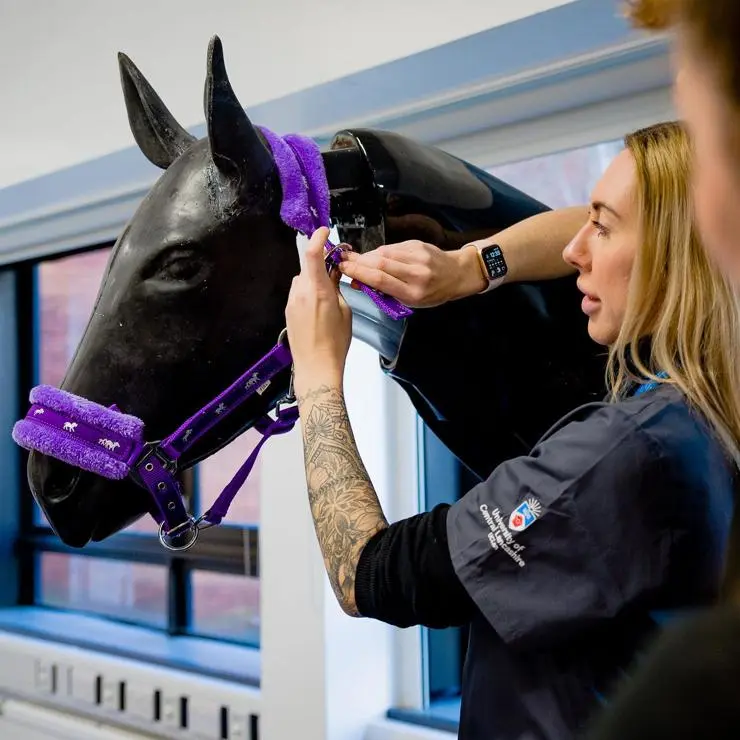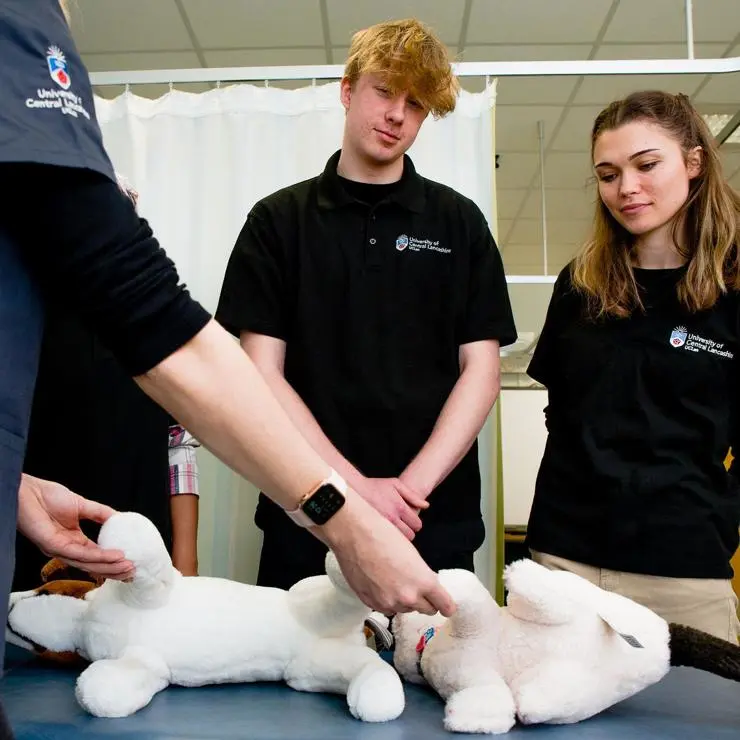Want to practice as a qualified veterinary physiotherapist? Our MSc/PGDip Veterinary Physiotherapy and Clinical Rehabilitation will develop your underpinning knowledge, professional skills and clinical skills.
Why study with us
- You’ll be able to practice as a qualified veterinary physiotherapist. Work in therapy centres, veterinary practices or on a self-employed basis.
- You’ll be part of our brand new School of Veterinary Medicine. You'll have access to state-of-the-art clinical and rehabilitation facilities.
- We use a multi-disciplinary approach. This emphasises the veterinary physiotherapists role in clinical rehabilitation for acute and chronic cases.
What you'll do
- You'll get access to extensive, interactive e-learning material. Engage with this in your own time alongside scheduled online tutorials and group activities.
- Hands-on practical teaching sessions using state-of-the-art facilities. This includes clinical skills suites and a veterinary physiotherapy centre.
- Gain practical and clinical experience in supported veterinary physiotherapy placements. We offer a flexible approach to fit around existing commitments.
Modules
Every effort has been made to ensure the accuracy of our published course information. However, our programmes are subject to ongoing review and development. Changing circumstances may cause alteration to, or the cancellation of, courses. Changes may be necessary to comply with the requirements of accrediting bodies or revisions to subject benchmarks statements. We may also make changes to keep courses updated and contemporary, or as a result of student feedback. We reserve the right to make variations if we consider such action to be necessary or in the best interests of students.
Veterinary facilities
You’ll learn using a wide variety of digital resources in our virtual learning environment. This allows you to interact with other students, lecturers and expert guest tutors.
Academic expertise
Veterinary physiotherapist jobs
After graduating, you’ll be able to practice as a qualified veterinary physiotherapist. You'll be able to work in therapy centres, veterinary practices or on a self-employed basis. Veterinary physiotherapists and other musculoskeletal therapists work as part of a vet-led team. This allows a holistic service to veterinary patients.
Entry requirements
Please note if your application is deemed unsuccessful, subsequent applications submitted within the same academic cycle will not be considered.
- Good Honours Degree in Animal Science/Health or a related subject such as Zoology, Bioveterinary Science, Veterinary Nursing, Physiotherapy (Human), Veterinary Medicine/Science or equivalent experiential learning
- Plus minimum two weeks recent, hands-on experience working with small animals and two weeks working with large animals
- Successful admissions interview
- Work experience references will be required for applicants who are made an offer
- A satisfactory Criminal records declaration (DBS/Disclosure Scotland) and Occupational Health clearance is required for this course
This course will involve you working with vulnerable groups of individuals, this may include children. In order to ensure that the University offers places on their programmes to suitable candidates you will be required to obtain a satisfactory Enhanced Disclosure and Barring Service clearance (formerly termed CRB).
Fees and funding
Scholarships and bursaries
We have a wide range of bursaries, scholarships and funds available to help support you whilst studying with us.
Select your country to see eligibility information and how to apply by selecting more info on the cards below.
Dependants Bursary
Students with financially dependent children may be eligible for our Dependants Bursary as part of our financial support package.
Find out more about Dependants BursaryCarers Bursary
If you need extra support because you have unpaid caring responsibilities alongside your studies.
Find out more about Carers BursaryRice-Jones Charitable Trust Postgraduate Law Scholarship
The Rice-Jones Charitable Trust scholarship will cover the tuition fee of a postgraduate course for a student who can demonstrate academic promise, commitment to the legal profession and financial need.
Find out more about Rice-Jones Charitable Trust Postgraduate Law ScholarshipSports scholarships
We offer student athletes support and opportunities for their playing careers whilst they study a high-quality degree.
Find out more about Sports scholarships
This course is delivered by the School of Veterinary Medicine
For information on possible changes to course information, see our essential and important course information
You can find regulations and policies relating to student life at the University of Central Lancashire on our student contract page


